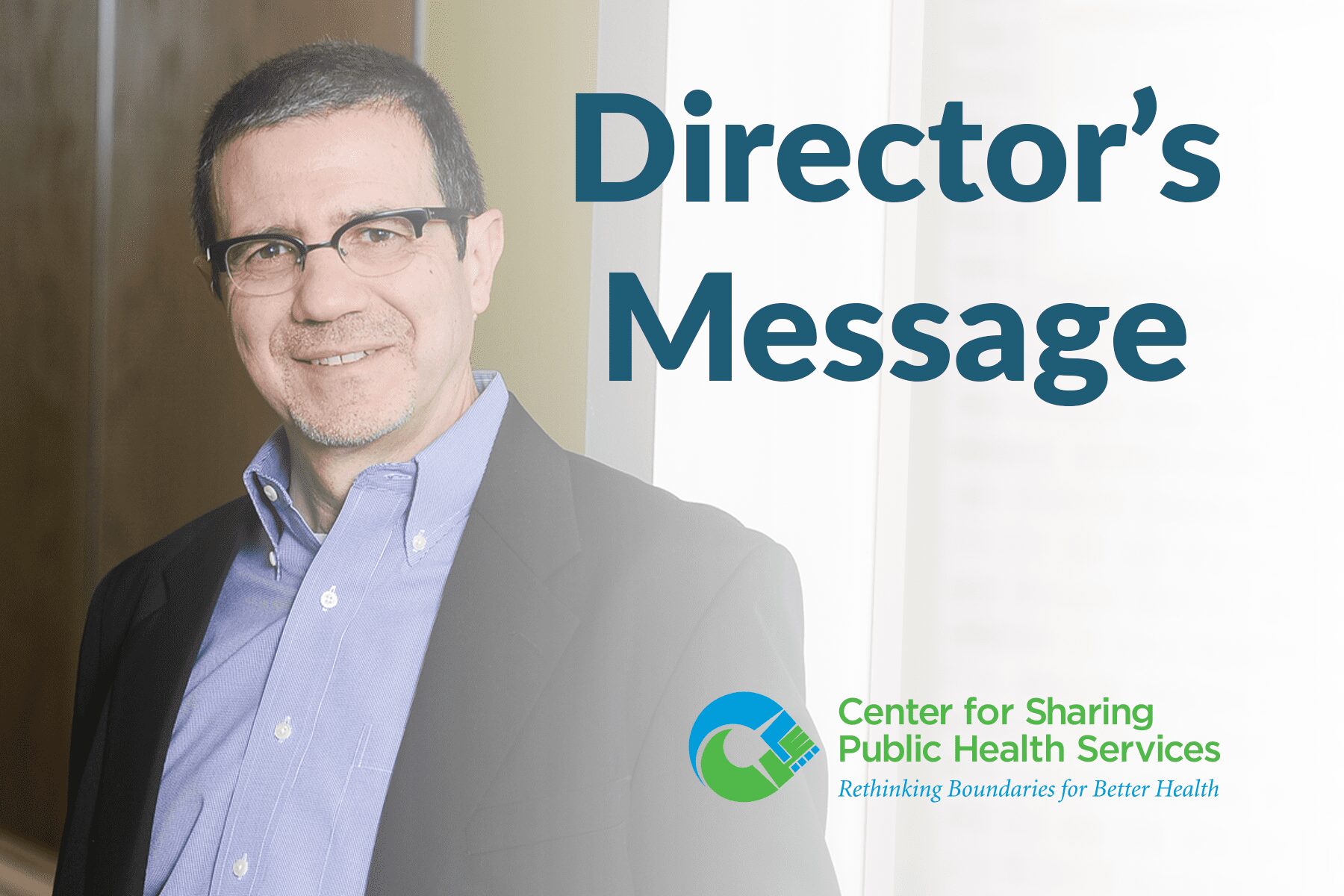A Message from the Director of the Center for Sharing Public Health Services
Earlier this year, with some trepidation, we decided to move forward with another round of funding through the Center’s 2020 Small Grants Program. We were hesitant to do so because we didn’t know if public health departments already overwhelmed by COVID-19 and the response to social unrest linked to systemic racism would have enough attention span left to make the small grants meaningful for them.
However, we also realized that many health departments were partnering to meet the demands of this new era, and that some of those partnerships would find value in the funding and technical assistance we were prepared to provide. And we thought we could increase our learning by specifically focusing on cross-jurisdictional sharing (CJS) arrangements designed to advance health equity by addressing social determinants of health, the public health response to COVID-19, structural racism or other related issues.
When we finally released our request for proposals in late summer, we were surprised by the number of applications we received, all of which were from collaborative partnerships working on important programs designed to advance health equity. We also were discouraged, because many of these important initiatives didn’t qualify for the program because they didn’t meet our definition of cross-jurisdictional sharing arrangements.
One of our goals in providing these small grants is to learn along with our grantees and the response to our 2020 request for proposals was an important learning experience for us. It left us wondering if our definition of cross-jurisdictional sharing is too narrow for the current times. Specifically, should we continue to limit our program only to collaborations between and among public health departments in multiple jurisdictions, or should we expand it to include other governmental or private agencies that benefit communities and improve public health?
The current conceptual and operational framework that the Center has been using was developed in 2013. In the next few weeks, we will start a strategic discussion to consider whether a new or modified framework is necessary. Some of the questions we will be asking ourselves include: Should we update our definition of CJS to reflect public health functions carried out through collaborations by governmental entities that are not public health departments? What is the role of collaborations with non-government agencies? Are there any new/revised goals, objectives or strategies we should consider in order to be responsive to this new era?
As we begin this discussion, we’d love to have your input. Please email us at phsharing@khi.org.
In the meantime, we are pleased to announce that we were able to select three grantees for the 2020 Small Grants Program. All three grantees are working on important initiatives to advance health equity, and all three meet our definition of CJS.
The 2020 grantees are:
- The Northern Michigan Public Health Alliance is a CJS arrangement made up of seven local health departments in a rural, 31-county region. They will implement the first phases of the Mobilizing for Action through Planning and Partnerships (MAPP) Health Equity Supplement (HES), which will allow a greater focus on equity and social determinants of health in the next Community Health Assessment / Community Health Improvement Plan cycle. The grant will help the health departments convene a steering committee for the HES, review and collect secondary data indicators, and complete three reports, one for each region involved in the alliance.
- The Metropolitan Area Planning Council (MAPC) is a CJS arrangement between the cities of Revere and Chelsea and the Town of Winthrop in Massachusetts. They plan to hire a shared regional epidemiologist who will monitor and conduct surveillance of COVID-19 cases and also analyze data pertaining to the social determinants of health. The grant will support a planning and hiring process that includes establishing a core group to lead the process, developing the shared position description, establishing governance guidelines for the position, and drafting a first-year scope of work.
- Genesee, Orleans and Wyoming counties in rural New York will work together to improve access to COVID-19 screening and preventive health services via a liaison program for agricultural workers. The grantee also will share information and best practices with other rural counties in the region. The grant will support developing a standardized protocol for program implementation, identifying and connecting with relevant community partners, and completing county needs assessments for program monitoring.
Please email us at phsharing@khi.org and let us know what you think. We value your input and hope to use it in our strategic conversations.
— Gianfranco Pezzino, Director
